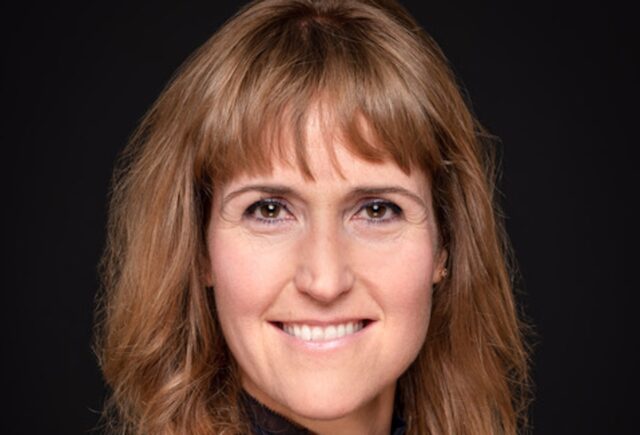Fresh investments in Africa’s pay-as-you-go (PAYGo) energy market confirms investor interest in the sector is holding up – in spite of the Covid-19 pandemic, and despite a couple of high-profile bankruptcies highlighting the challenging economics facing PAYGo companies.

In short
- Investors’ confidence in the PAYGo model is holding up despite challenges to the financing model and concerns of a debt bubble.
- French energy company EDF recently took a stake in PAYGo company Bboxx’s Kenya operations.
- Nairobi-based Sunfunder, an intermediary for solar energy investments, closed the oversubscribed $70m Solar Energy Transformation (SET) Fund this month.
Earlier this month, Nairobi-based Sunfunder, an intermediary for solar energy investments, closed the $70m Solar Energy Transformation (SET) Fund, following an investment by OeEB, the development bank of Austria.
This happened right after French energy company EDF took a 23% stake in the Kenya operations of UK-headquartered Bboxx, one of the largest PAYGo companies. Bboxx builds, distributes and finances off-grid solar-powered systems across Africa.
Off-grid solar transforming African lives
More than 600 million Africans have no access to power. Where there is energy from the grid, service is often not very reliable.
Off-grid solar consumer products from lights to fridges are transforming the lives of millions of Africans. Kids can do their homework at night, mobile phones can be charged, milk keeps fresh in the fridge and people can follow the news on the radio or television.
More than 2.5 million households now have access to solar power thanks to the pay-as-you go business model where end-customers finance solar home systems (SHS) through a lease-to-own model.
The PAYGo energy companies – which operate as hybrid technology providers and financing companies – typically hold this consumer debt on their balance sheets. Once consumers have paid off the solar panels they own the equipment and have no more energy costs. Many then choose to add other products, such as a television or clean cooking stove.
Low-income customers can finance SHS and other appliances without security deposit. Payments are typically made on a daily, weekly or monthly basis via mobile phone banking. If a customer is late making a payment, the system can be shut down remotely and reactivated once payment has been received.
Modest pandemic impact
The sector has not escaped the pandemic’s impact. In the first half of 2020, according to the latest Global Off Grid Solar Market report, sales of off-grid solar lighting products fell 26% compared to the same period in 2019.
Last year only 3 million units were sold – 1 million of these under PAYGo terms. These were the lowest volumes recorded since 2014.
Investment levels in PAYGo have gone down in the past year, Benjamin Attia, senior research analyst in the Energy Transition practice at consultancy Wood Mackenzie told Impact Investor. He estimates that there has been a 12% decline in investment into PAYGo in full year 2020, most of that attributable to Covid.
But the drop in investment volumes is relatively modest in the context of the disproportionate impacts that the pandemic has had in emerging markets.
Continued investor interest
Investors continue to plough cash into the sector. The EDF and Bboxx tie-up announced in March is targeted at providing access to energy to over 1 million Kenyans through SHS by 2025. The companies said the investment will “turbo-charge” the roll-out of Bboxx’s SHS offering.
Bboxx’s business model has proved attractive to fund managers. Current shareholder African Infrastructure Investment Fund 3 contributes further investment in Bboxx Kenya. Africa Infrastructure Investment Managers (AIIM), the fund’s manager, is building on its $31 million investment in Bboxx’s Kenya, Rwanda and Democratic Republic of Congo operations in 2019.
PAYGo-focused funds are also showing a keen interest as the oversubscribed close of the Sunfunder SET showed earlier this month. OeEB and Bank of America joined other investors in the blended finance vehicle focused on distributed solar and storage investments in Africa and Asia.
The investors include Swedfund, Bank of America, Mercy Investment Services, The Schmidt Family Foundation and several individual investors, including from the Toniic impact investor network. They followed anchor first close investors the US Development Finance Corporation (DFC), Calvert Impact Capital, Ceniarth and the Ikea Foundation.
Need for more capital
This active interest of impact funds is critical for the PAYGo sector’s future growth prospects, given the need for regular injections of working capital.
According to the CDC Group, the UK’s development finance institution, the sector needs more capital to grow. While PAYGo companies pay their suppliers for solar systems up front, they are forced to wait up to three years to collect the full cash payment from their customers.
“Some companies have started to achieve profitability at the corporate level. Most of them have pretty impressive unit economics, and others are well on their way to profitability,” said Attia.
“But because this is a last mile distribution business, and there’s a lot of overheads, you need working capital to finance basically every sale that you make.”
Wood Mackenzie has flagged up the risk of a looming investment ‘cliff’ affecting the sector, with investment highly concentrated in a few highly-capitalised PAYGo companies, some of which may be overvalued, and operating in adjacent and overlapping geographies. Mostly they prioritise market share over profitability.
A couple of high-profile bankruptcies highlight the challenging economics facing PAYGo companies. Germany’s Mobisol had survived for almost a decade with equity and debt injections from the development finance and impact investing communities, before filing for preliminary insolvency in September 2020. French utility Engie acquired the company and its 150,000 clients.
Customer commitment
Yet concerns about a burgeoning debt bubble reflecting customers’ inability to repay may be overblown. “Most of the companies have repayment rates only just shy of 100%,” Attia told Impact Investor. “Default rates are in the low single digits for the most part. It shows customers value the service and are willing and able to pay for it.”
Although PAYGo consumers pay more of their wallet on energy expenditure than otherwise – typically 30 to 35% of total household income, reckons Wood Mackenzie – these are still cheaper and safer alternatives to kerosene lanterns, for example.
Multilateral agencies are looking to boost support to the sector. The International Finance Corporation’s Lighting Global initiative is backing a plan to help standardise how companies and investors report on financial performance of PAYGo by undertaking a data collection pilot to benchmark key performance indicators for the sector.
Despite the experience of Mobisol, and the large funding gaps confronting PAYGo companies, investor appetite is looking robust.
“There are always going to be questions about saddling customers with debt,” said Attia. “But the PAYGo model is designed to increase the affordability of these solutions.”





